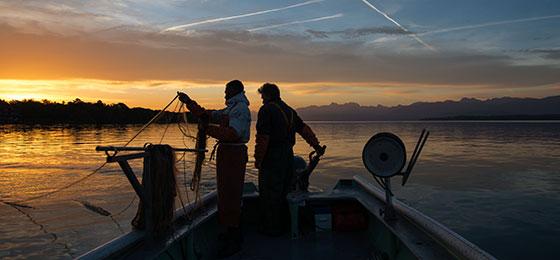Translating knowledge into the language of policy

A new NRP 69 project is investigating how the programme’s results can be incorporated into policy.
The Swiss National Science Foundation (SNSF) has approved an additional project within the National Research Programme "Healthy Nutrition and Sustainable Food Production" (NRP 69). Researchers at the University of Bern are analysing the policy fields that are relevant for NRP 69, from agricultural policy and regulations on food processing, trading and safety through to public health strategies. They will propose tangible ways of incorporating the recommendations from NRP 69 into government policy.
Has a cross-sectoral policy analysis of this type ever been carried out in Switzerland before? Fritz Sager: NRP 69 covers various subject areas that cannot easily be delineated. They range from agricultural policy to public health strategies. Our policy analysis is equally wide-ranging. Several cross-sectoral policy analyses have already been carried out in Switzerland on climate and environmental policy, as well as energy policy, but never on nutrition policy. What challenges have you been facing during your policy analysis in the food sector? Although the same problems are being addressed in different policy areas, individual sectors operate very differently. For example, food production regulation sets different priorities than trade policy or health policy. Besides, different players dictate the direction of individual policy areas, and different cultures prevail with regard to decision-making. And ultimately we are dealing with different offices and departments that are concerned with numerous laws and international agreements. In the first phase of our project, we are analysing the relevant policy fields, then we will identify the scope for action in the individual areas. Thirdly, we want to illustrate how and where the results from NRP 69 can be incorporated into policy. What results are you expecting and how will they be incorporated into NRP 69? Our study is based on the findings and recommendations from the individual projects. The aim is to identify where the programme's findings interface with policy. Furthermore, our fundamental analysis of the policy area covered by NRP 69 will become a source of added value in the future when society faces relevant questions on the issues of healthy eating and sustainable food production. Are you analysing the relevant policy fields entirely from a scientific perspective, or are you entering into the political arena with your work? Our policy analysis is geared entirely to scientific standards, and is free from any ideology. But our research is application-oriented. We want to find out where and how the scientific recommendations can be put into practice. You could say that we are translating the knowledge from NRP 69 into the language of policy and administration so that it can be utilised.
